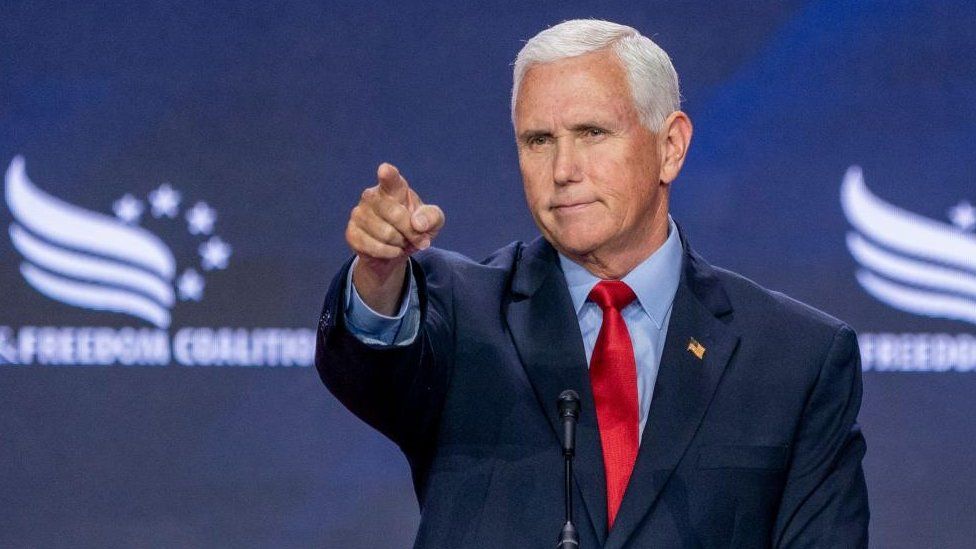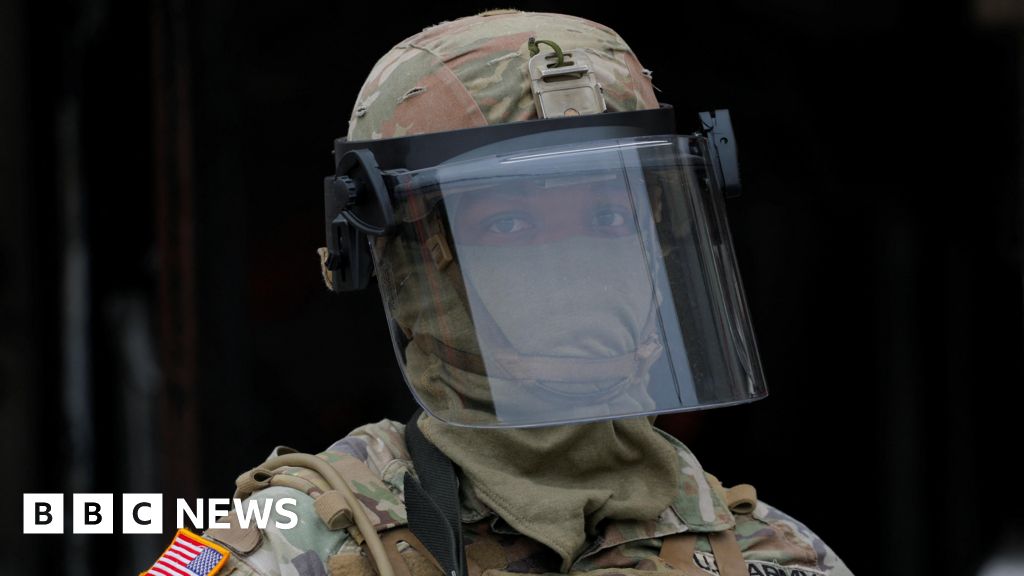ARTICLE AD BOX
 Image source, EPA-EFE/REX/Shutterstock
Image source, EPA-EFE/REX/Shutterstock
By Kayla Epstein & Holly Honderich
BBC News
Former US Vice-President Mike Pence has challenged his rivals in the Republican presidential field to support a 15-week national abortion ban.
He told a conservative gathering every Republican candidate for president should support 15 weeks "as a minimum nationwide standard" on abortion.
Last year the US Supreme Court overturned the constitutional right to abortion in the US.
Anti-abortion groups want to make a federal ban a key 2024 election issue.
The leader of one such group, Marjorie Dannenfelser with Susan B Anthony Pro-Life America, has said she will oppose any presidential candidate who does not embrace a 15-week national ban.
She called Mr Pence "the definition of an unapologetic pro-life leader".
Mr Pence, who has long made his evangelical faith central to his political identity, is one of the few Republican candidates to have spoken unequivocally about his support for such a ban.
On Friday at the Faith & Freedom Coalition's annual conference in Washington DC, Mr Pence said: "Let me say from my heart - the cause of life is the calling of our time and we must not rest and must not relent until we restore the sanctity of life to the centre of American law in every state in this country."
According to Britain's National Health Service, at 15 weeks a human foetus is about the size of an apple, eyelashes and eyebrows are starting to develop, and the unborn child is beginning to hear.
Opinion polls suggest a majority of Americans back some form of legal abortion access, though public support for the procedure being legal drops notably by the end of the second trimester of a pregnancy.
Some Republican candidates are wary of backing a 15-week pledge.
Some in the party have argued that last year's rollback of abortion rights by the Supreme Court cost them in the midterm elections.
Meanwhile, a series of Democratic-led efforts to shore up abortion rights in conservative-leaning states such as Kentucky succeeded last year, and a closely watched Wisconsin judicial race - which many viewed as a proxy war over abortion - went decisively for a Democrat.
President Joe Biden is expected to make abortion a central issue in his re-election campaign.
About 25 million women of child-bearing age live in a state with restricted or non-existent abortion services since the Supreme Court overturned Roe v Wade last June.
Sensing the political risks, many Republican presidential candidates have skirted the issue of abortion bans.
Former President Donald Trump, whose conservative appointments to the Supreme Court paved the way for the US right to abortion being overturned, has backed away from endorsing a specific national ban.
Former South Carolina Governor and UN ambassador Nikki Haley has called a federal ban impossible.
Further complicating matters for contenders is the anti-abortion movement does not agree on what a national ban should look like.
For example, Students for Life America is campaigning for a six-week ban - before most women know they are pregnant - and with no exceptions for rape or incest.
Voters are also split on the issue. A February PRRI poll suggested that 44% of Americans would support a 15-week ban on abortion, while 52% opposed such a law.
A federal abortion ban would also have to pass both chambers of Congress - and Republicans efforts to pass such a law have failed in the past.

 1 year ago
92
1 year ago
92








 English (US) ·
English (US) ·